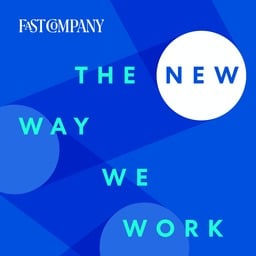The Remote Roundup December 13, 2021
If you have ever been looking for a remote work strategy you may have noticed there exists a huge gap in between great insights and everything else out there.
So, we created The Remote Roundup where we will scour the internet for the best remote work content and give our analysis on one article while ranking the top 4 blogs of the week. Plus a podcast!
For the weekly collection of relevant and high quality remote work news, jobs, podcasts, guides, and expert advice from remote work experts, subscribe to our newsletter: The Remote Times.
Ok, let's get started with the top remote content for the second week of December.
Top Article: "How the Return to Office Work Is Impoverishing the Middle Class" by Joan C. Willams in Politico.

Source: Politico.com
"A two-tier system is emerging in which highly paid professionals have more options than ever, while middle-income workers often are ordered back to full-time on-site work and might have little choice but to quit."
There is a lot to unpack there in this quote from Politico, but what they are referring to is uneven work from home options depending on your job title and salary.
The article refers to a Stanford study that found those making over $100,000 had much more flexible working arrangements than those making between $35,000-$70,000.
It actually has nothing to do with the specific jobs. More than half of all on-site jobs can be done remotely according to Gallup.
But that doesn't reflect the reality. For example, 79 percent of people who work in government wanted to work remotely in 2020 but only 39 percent could in 2021.
They mention the story of a single mother who was working remotely for the State of South Carolina throughout the pandemic. But when partisan politics got in the way of rational decision-making, the governor required all government workers to come back to state buildings.
She was left with little options.
Go back to the office 5 days a week and leaver her son home alone for remote schooling while also exacerbating her own disability or quit.
Unfortunately, she was left with no choice but to join the many of "the great resignation." The problem is that she still hasn't found better employment, and is currently putting up drywall at half her annual salary.
The middle class was already in a precarious position before the pandemic but with little to no safety net, many people are slipping into low-income and even extreme poverty tax brackets as businesses close, inflation increases and some companies restrict remote working options.
According to Pew Research, the global middle class decreased by 54 million people in 2020. While low income increased by 21 million and those living on less than $2 a day increased by 131 million.
All while the richest 1% of households saw their net worth rise by some $4 trillion in 2020.
2021 was expected to be a rebound year, but a study by NPR in August and September found that middle-income households were almost 3.5 times more likely than high-income ones to be facing serious financial problems.
So while those in the tech bubble have largely benefitted from remote work over the last year, those middle class workers in other industries have had to return to the office even when their job could be performed remotely.
When they protested, they were either let go or had to quit with no backup plan. There was no legitimate excuse from their companies either, other than they felt like people were more productive while at the office (They had more power over them).
If anything remote work should be championed for the middle class as they miss out on most child-care subsidies, make up about 50% of the U.S population and are the most diverse group with the highest amount of women and people of color.
While other countries like Portugal in Europe are moving swiftly to enshrine remote work into their legal codes and protect their middle classes, the Americas have failed to pass any legislation that would allow people with children to be given remote work options, no questions asked.
If this continues this two-tiered workforce concept will become more of a reality.
The data may already point to that:
-
92 percent of people who work in HR wanted to work remotely as of last fall, but only 53 percent did.
-
95 percent of IT workers wanted remote work, but only 77 percent were given it.
4. The Remote Desk blog offers their ultimate guide to employee engagement in the remote workplace.

Source: Remotedesk.com
Without employee engagement you basically have a remote company where people log-in perform their tactics and sign off without speaking to any other colleagues for days.
It is critical to long-term business goals that employees are aligned with the mission and have great communication habits. This creates stronger working relationships and helps boost productivity.
In this article they teach some strategies to increase the engagement at your company like prioritizing feedback. Managers who give more feedback are rated higher by their teams.
Another strong engagement tactic is prioritizing the physical and mental well-being of employees. Implementing company wellness initiatives and offering access to counselor show the organization cares more than outputs.
3. Sam Milbrath of the Trello blog gives their tips to make the holiday season less stressful for your employees

Source: Blog.trello.com
Anyone working in tech can tell you that the last couple of weeks in December are absolute chaos. Everyone is trying to close out their projects for the year and prepare the strategy for the next while taking some much needed time off.
In a time that should be filled with cheer, it is a marathon just to get to the 24th. Trello has come out with an article to help your remote team make the most of these stressful weeks and the first advice is to give extra time off over the holidays.
Employees are often afraid to ask for more time off in the holidays so by making it company policy to take off the week between Christmas and New Years eliminates that barrier.
Another important practice is to push non-time sensitive deadline into the new year while anticipating the workload for the following month. Finally you always want to give recognition and thank to employees while being inclusive and celebrating all of their holidays.
2. Stefana Zaric of the Deel blog explains how to nurture diversity, inclusion and belonging in remote workplaces

“Diversity is having a seat at the table, inclusion is having a voice, and belonging is having that voice be heard." Liz Fosslien and Mollie West Duffy. It is so important to make these distinctions when building your remote team because it is rare that you often get all three.
However, when you do, your entire company will benefit because employees can thrive in their personal and professional lives. Employee retention will skyrocket when everyone feels like they belong to something bigger and a diverse company brings a diverse customer base.
To start or improve on your diversity and inclusion tactics the first thing you should do is actually learn more about your team. Deel suggests building a slide deck where ever team member shares some personal and cultural information like holiday traditions and where their name comes from.
Another important strategy is to not only think of team members in terms of ethnicities and nationality but also if they a neuro-diverse. Finally, you will want to document your inclusion efforts and the best way to do that is by creating an employee resource group.
1. Justin Mitchell of the Yac blog gives his predictions for Remote Work in 2022

Source: Yac.com
It is incredibly refreshing to read a list of remote work predictions that wasn't copied from the back of an Economist article. Justin Mitchell is the founder nad CEO of Yac, a voice recording and communication tool for remote teams, so he knows what he is taking about.
One of his interesting predictions is that asynchronous meetings will become more commonplace among hybrid and remote teams. This means employees will be recording their voice to explain tasks or projects more than sending slack messages or using long email chains.
Some new employee demands will be asking to be paid in cryptocurrency. This is more relevant to the further adoption of bitcoin, other cryptos becoming more mainstream, and the rise of global inflation. He says a new solution that enables this will probably come about next year.
Employees will also be asking for more workcations as they try to take advantage of the benefits of remote work and see their friends working from beaches.
Some of his most enlightening predictions is that there will be more need to end toxic workplace practices. He says that workplace bullying and "hustle culture" will start to see its way out as more employees will expect to see better work-life balances and these initiatives will have to come from the top down.
Finally, 2022 is the year he thinks HR and recruitment finally catch up with the rest of remote work. They will address important issues like employee expenses for working at home, the proper benefits to offer, and moving away from traditional ATS systems.
Best Podcast: Dr. Tomas Chamorro-Premuzic appears on Fast Company's "The New Way We Work" podcast to talk about why bosses are often bad at their jobs

Source: Player.fm
Kate Davis from Fast Company's podcast: "The New Way We Work" is joined by Dr. Toma Chamorro-Premuzic.
Dr. Chamorro-Premuzic is the Chief Innovation Officer at Manpower Group, Professor of Business Psychology at University College London and Columbia University, and the author of several books including “Why Do So Many Incompetent Men Become Leaders? (and how to fix it).”
They discuss how the people who end up in leadership positions often possess the traits least suited to manage and lead people.
This phenomenon has become more evident than ever before with the rise of remote work.
Check out this week's featured podcast!
Like what you read?
If you want more content like this sent straight to your inbox every Friday then sign up for The Remote Times.
And make sure to check out our other blog posts where we give key remote work tips every week!
See you next Friday for December's last edition of the Remote Roundup!
Grow remote with GroWrk. We provide and manage laptops, devices, other equipment and services to remote teams in over 150 countries.

Mark Gregory
December 13
